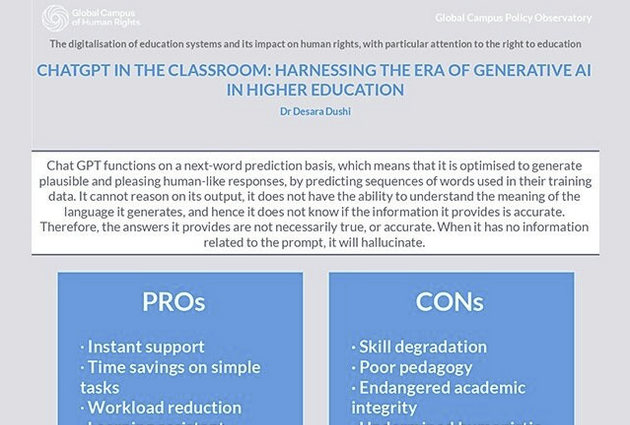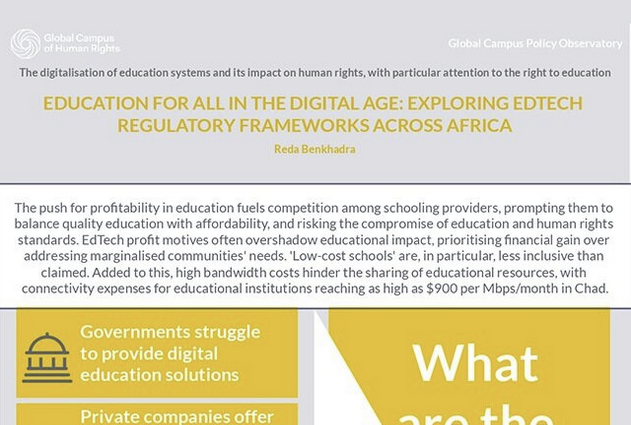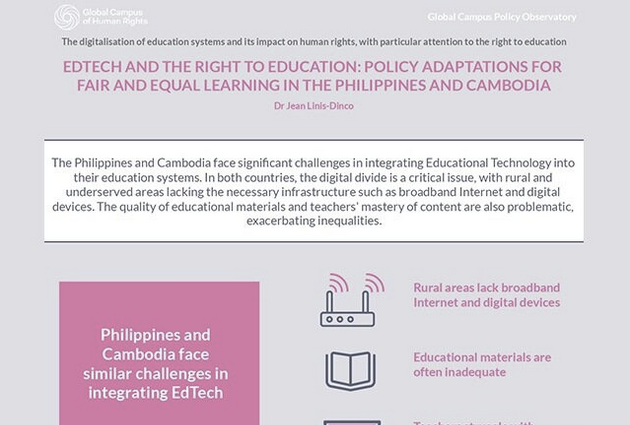Policy Observatory
Our Policy Observatory programme aims to strengthen the role of the Global Campus network and its regional members by coordinating research initiatives that respond to urgent human rights issues.
The initiative
The Global Campus Policy Observatory serves as a virtual hub where a team of talented researchers, all alumni from Global Campus regional programmes, produce complementary policy analyses. The primary objectives are to generate policy recommendations, address current human rights challenges at regional and global level, and engage graduates and experts in the process.
The Policy Observatory was launched in 2018 as a pilot project and has since been held almost annually, involving so far over 40 alumni worldwide. The latest edition featured a workshop where alumni and external guests shared initial research findings, as well as public webinars, advocacy plans, and digital tools developed with the E-Learning Department.
Below, you’ll find an overview of policy briefs from recent years.
2024 Edition
This edition focuses on the digitalisation of education systems and its impact on human rights, especially the right to education. It presents a multidisciplinary study combining qualitative and quantitative analysis across various regions (Southeast Asia, Europe and South East Europe, Caucasus, Latin America, Africa, and MENA). It delves into how digital technologies affect the right to education, outlines emerging trends and practices, and offers integrated recommendations for policies and practices, grounded in a human rights-based approach. Co-funded by the Italian Ministry of Foreign Affairs (MAECI).
2022 Edition
This brief commemorates the 10th anniversary of the UN Guiding Principles on Business and Human Rights, examining topics like migrant worker rights in Southeast Asia, labour exploitation in Spain’s agricultural sector, and child labour among refugees in Lebanon, CSR in Albania and Bosnia and Herzegovina, labour rights in Ukraine, and economic growth and its impact on indegenous communities.
2021 Edition
Focusing on the relationship between the environment and human rights, particularly the rights of future generations and youth participation, this edition explores themes such as legal protection for children in the context of climate change, education policy in South Asia, youth climate activism in Latin America, pathways for the African Human Rights System, Europe’s aspirational climate policies and ecosystem restoration.
2020 Edition
This edition explores the intersection of technology and human rights, covering topics such as facial recognition in Europe and Latin America, aerial security robots in Africa, digital rights during COVID-19 in the Western Balkans, surveillance technologies and privacy, business and human rights in Nepal’s domestic law, and Palestine’s “cyber occupation”.
2019 Edition
This diverse edition covers topics like self-regulation of media coverage on migration in Argentina, the Belgian women’s strike, women human rights defenders in Armenia, food security in Yemen, development and human rights in Sri Lanka, access to justice in Africa, and LGBTI people and right to assemply in Bosnia and Herzegovina.
2018 Pilot Edition
Addressing a range of issues, it touches on migration policies in Latin America, sustainable funding in the Balkans, press freedom in Europe, human rights violations in Thailand, youth unemployment in the Arab world, the Activity Reports of the African Commission on Human and Peoples’ Rights


